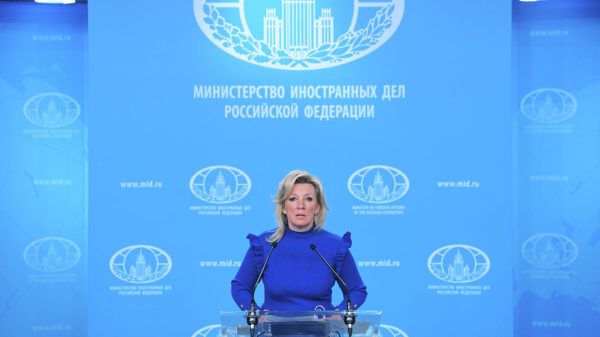
Alexei Navalny spent weeks in a coma after a near-fatal poisoning in Siberia last summer
Credit: AP/AP
Russia’s justice ministry on Wednesday refused to comply with an emergency ruling by the European Court of Human Rights calling for Alexei Navalny’s release.
The Russian opposition leader was arrested in January and sentenced to nearly three years in prison earlier this month for violating the terms of his probation in a hastily arranged trial largely seen as the Kremlin’s political vendetta
Mr Navalny was detained at passport control in mid-January as he returned to Russia for the first time since he was poisoned and airlifted to Germany where he spent weeks in a coma before making a full recovery.
The European Court of Human Rights said on Wednesday that it has ruled that Russia should immediately release Mr Navalny, taking into account “the nature and extent of risk to the applicant’s life.”
ECHR rulings are binding for Russia in line with its obligations as a member of the Council of Europe, the continent’s main human rights forum.
Moscow has begrudgingly complied with thousands of ruling that claimants from Russia have won in the Strasbourg-based court but the authorities made it clear on Wednesday that they would not budge this time.
Konstantin Chuichenko, Russia’s justice minister, in a statement late on Wednesday described the ruling as “direct and crude interference in the courts system of a sovereign state.”
“This demand is impossible to comply with as there are no legal grounds to release that individual, according to the Russian law,” he said, accusing ECHR judges of “reaching a clear-cut political ruling.”
Mr Navalny, who rose to prominence a decade ago thanks to his investigations into official corruption, fell suddenly ill on a plane from Siberia to Moscow in August.
Several European laboratories confirmed that the 44-year old politician has been poisoned with the Soviet-era Novichok nerve agent used in the 2018 poisoning of ex-Russian spy Sergei Skripal and his daughter in Salisbury.
The Kremlin has denied any links to the attack and went as far as to doubt the very fact that Mr Navalny’s life was in danger.
A Moscow court is set to consider the politician’s appeal of his jailing on Saturday.

























































Свежие комментарии